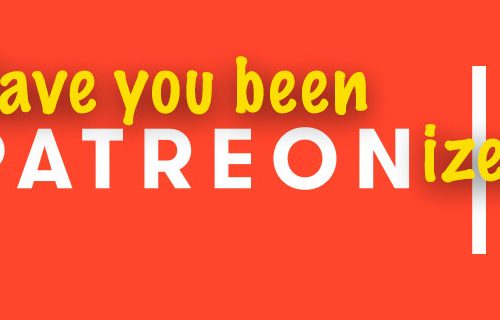This is a cross-post from Obliged to Offend

Several years ago, in a conversation with a fellow student on my university’s online debating forum, I encountered a mentality I have long since grown familiar with. The dialogue had started amiably enough. On the question of whether or not religion was a force for good in the world, I had taken the position that it was not. My opponent posited that it had. Not much of interest so far, you might say. The cordial atmosphere got decidedly chilly, however, as the conversation progressed.
Student: “Those blowing themselves up and committing atrocities are using religion as an excuse for what they are doing.”
Me: “But you can find justification for all sorts of atrocities against non-believers, apostates and others in the Holy texts.”
Student: “How dare you say that! That is deeply offensive. Lots of us have faith and don’t go around doing the things you say that religious people do.”
Me: “No, I wasn’t saying that….”
Student: “I can’t believe you are being so insensitive!”
Soon afterwards the fledgling online forum where the debate had taken place was pulled down and I was dragged before the head of faculty and admonished for my “insensitivity”. Fifteen minutes of our subsequent politics lecture was also given over to a muddled talk on how it wasn’t kosher to “disrespect” the beliefs of other students. At the time something occurred to me that the late Christopher Hitchens had written in a reflection on the student rebellions of 1968. “We didn’t want the dean telling us what we could smoke or who we could sleep with or what we could wear, or anything of this sort,” Hitchens wrote. “Now you go to campus and student activists are continuously demanding more supervision, of themselves and of others, in order to assure proper behaviour and in order to ensure that nobody gets upset.”
This mentality has taken on a life of its own in recent years as it has become increasingly unexceptional to hear of individuals who have been carted off by the police for saying things which have in some way caused “offense”. A recent example was that of Liam Stacey, a 21-year-old university student who sent a flurry of offensive tweets into cyberspace as Fabrice Muamba lay in a critical condition on a football pitch. It started when Stacey posted “LOL, F*** Muamba. He’s dead” on Twitter. After this had earned him the considerable wrath of other Twitter users, who re-tweeted Stacey’s vile tweet en masse, he lashed out with a volley of guttersnipe racist abuse. Stacey was subsequently given a 56-day jail term. In a separate incident last month another man was arrested for “malicious communication” after allegedly sending Newcastle United defender Danny Simpson abuse via Twitter. And yesterday a teenager from Weymouth was arrested after tweeting Olympic diver Tom Daley, one saying “You let your dad down i hope you know that.” (Daley’s father passed away last year after a long battle with brain cancer).
A throat-clearing is required to make myself absolutely clear: to defend a person’s right to use vile language is not to defend the sentiment behind the words. Nor is it to defend those instances of sustained abuse that constitute harassment. However as George Orwell once said, “If liberty means anything at all, it means the right to tell people what they do not want to hear”. To point out that the language used by Stacey and others was abhorrent would be an understatement. It would also be to miss the point, for once you start to argue over which words a person should or should not go to jail for using you may as well be quibbling over whether or not a sick man should be turned over in bed.
One of the arguments put forward by those who believe in prohibitive speech laws is that while it might be ok to criticise ideologies and religions, insulting things which are innate, such as a person’s race, sexuality or gender, must be strictly off limits. At first this sounds entirely reasonable. You cannot help the way you were born and therefore you should not have to put up with abuse for it. And yet if you believe the law should get involved at this point you must set down some definitions of those characteristics which are “innate” and therefore off limits. Doing so in many cases is almost impossible.
Take sexism for example. Certain things are quite obviously sexist and accepted as such. Informing a woman that she deserves to be treated differently for no other reason than her gender is sexist. Most people would agree on that. Things get trickier, however, as you reach more contentious ground. What about the person who claims that some of the behavioural differences between men and women may be hard-wired biologically as opposed to being the result of differences in how male and female children are socialised? Would such a person be considered beyond the pale? Would it be acceptable to drag them through the courts on charges related to hate speech? After all, I’m quite sure a statement like this would upset a few people. Alternatively we might to settle on a definition of hate speech that includes only racial insults. But by what objective standard are insults based on a person’s skin colour more hurtful than abuse suffered because of a disability, or because a person is overweight? And how do you quantify hurt feelings without making them the exclusive preserve of a few arbitrarily selected groups?
This is in no way an attempt to play down the suffering of those on the receiving end of abuse, online or otherwise. Nor is it to make excuses for those who use the anonymity of the internet to blight the lives of others. But things like racism and prejudice are combated most effectively when the public reaction to those airing vile views is punishment in and of itself. The disgust shown by a large number of Twitter users to the comments of Liam Stacey demonstrates that as a society we are getting to that point, slowly but surely, without needing to hand the power to sanction people with unpalatable (and even repulsive) opinions to the state. After all, what makes us think it will be easy to take those powers back?


